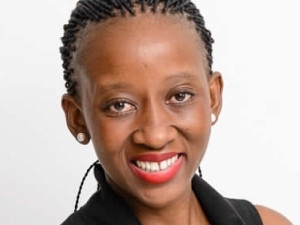
How do you plan to provide a region's inhabitants with infrastructure, hospitals, schools or even utilities without knowing how many people are going to be relying on that resource? The simple answer is that you can't. In order for any government to be able to manage a country effectively and efficiently, it needs to know the accurate demographics of its current and future population. This can prove challenging in Africa, where many people live in remote regions without access to the necessary facilities to obtain ID books. Additionally challenging is that Africa has one of the fastest-growing populations in the world.
While the importance of birth and death registration is generally recognised, there are still many cases where people remain 'invisible', never being recorded on any government system through their lives. Even in South Africa, there are cases where people are still not registered, they are born at home and don't go through the official processes and get official documents. Without any form of identification you'll find it difficult to get a job, driver's licence or treatment in a hospital, let alone access to any kind of education or bank account, or a cellphone.
So, assuming that the majority of people want and need some form of identification, and that governments need to know the identity of their citizens, it makes sense that citizens be registered on a national population registry and for each citizen to have a unique ID number and book so they can identify themselves.
"The only way that governments can effectively and efficiently engage with their citizens on service delivery such as health or education is through some sort of identification that facilitates interaction between the individual and the state," says Keoagile Magasa, Regional Sales Manager for OT-Morpho.
Magasa says that the onus is on government to engage with the community, to do field registration, find out who has been born where and when, and educate citizens about getting registered. This is particularly applicable to rural areas, which desperately need initiatives by government that utilise available technology to capture citizens' details as well as biometric data, such as their photos and fingerprints, on site where the citizens live.
"This type of initiative could be driven by government in partnership with vendors in the biometric space that are able to support governments with technology and experience in field operations. Leveraging the skills and expertise of the private sector, government would quickly and efficiently obtain accurate records of how many citizens are in the country," says Magasa.
The phenomenon of the digital ID is still relatively new in Africa, she continues. "Although we're seeing an increase in the use of digital identification in the commercial space, such as online mobile banking for example, governments in Africa don't yet have the necessary infrastructure to actively track the authenticity of an individual through an electronic ID."
This isn't the case for all African countries. Nigeria, Morocco and Mauritania have successful e-government policies and strategies in place. Magasa continues: "Nigeria has a multi-purpose ID card that allows citizens to engage with certain government entities through the Web. In South Africa, you can interact with the revenue service online.
"Other countries offer e-health services, whereby ID card number help track the health services you use, preventing duplication of treatment. If the back-end and systems are integrated, then information can be shared across providers for a better quality of care and increased efficiency. Digital identification ensures that the right person receives the right service, whatever that might be."
In order for African governments to deliver digital identification, the fundamentals need to be in place:
1. Governments need political buy-in to support a national population registry.
2. The governments need to commit resources and capital to implementing the infrastructure and maintaining it throughout time.
3. Public servants must be trained on how to use the technology - and the end user (i.e. citizen) needs to be educated about the need to register, the benefits they would get and what technology is available to interact with government.
4. Solution providers within the industry need to develop innovative solutions that are cost-effective for governments of Africa to deploy.
5. Finally, there's the issue of access: how do you ensure that people are able to engage digitally? They need access to laptops, tablets or smartphones to use the relevant applications, but they also need Internet access. In remote areas, governments can provide kiosks to enable citizens to access services digitally, for instance.
Share